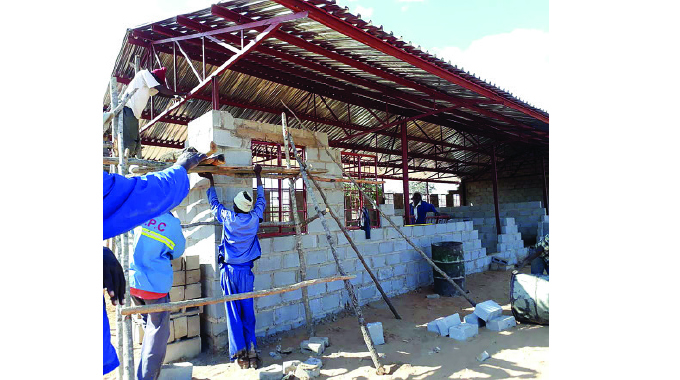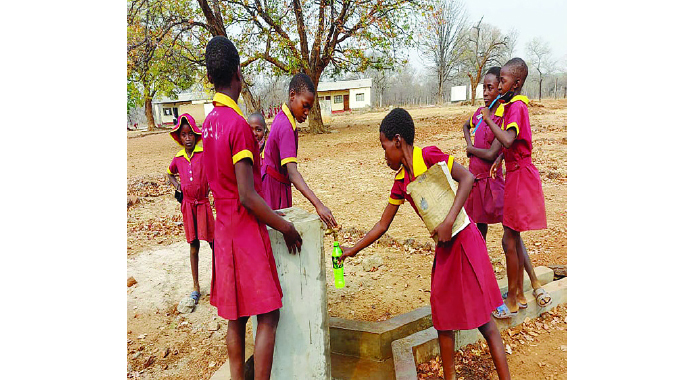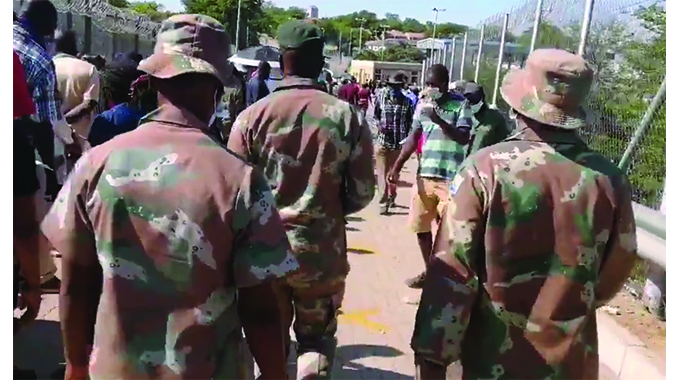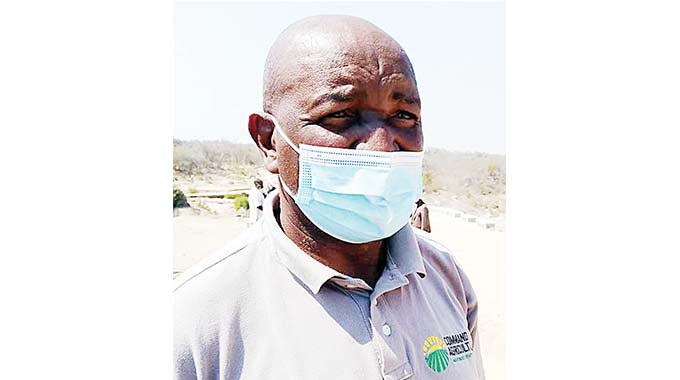World Vision transforms state of Lupane schools

Leonard Ncube, Victoria Falls Reporter
THE era of learning under trees and carrying water to school for drinking and sanitation is over for children in Lupane after World Vision invested close to US$300 000 into learning infrastructure, water and sanitation projects in the district.
World Vision has been undertaking various schools’ development, Water, Sanitation and Hygiene (Wash) programmes both for learning institutions and communities in Lupane for close to two decades.
A total of US$260,339 has been invested in constructing classroom blocks, buying textbooks, installing piped water systems and setting up gardens as well as rolling out sanitation projects since October last year.
The projects targeted primary schools namely Matshokotsha, Ntuthuko, Sinqobile, Lupane, Mtshibini, AMR, Sisters, Kusile, Ndlovu, Mtshakabandana, Shabula, Zinaphi, Somhlanga, Komba, Kabela, Phunyuka, Malunku, Matshiya, St Paul’s, Kwesemvubu and Manasa.

Others are Makhulubuse, Chitete, Kenyandavu, Sefula, Gegema, Dandanda, Mahlalufikile, BH42, Kana 6, Ntuthuko, Msewele, Sibombo, Kana, Mzola 27, Nono, Mzola 5, Mzola 55, Mzola 52 and Thokozani.
Twenty-one primary schools were supported with Grade Seven study guides, Grade One and Two updated curriculum core text books while 15 primary schools in Mabhikwa benefitted from Grade Seven textbooks for Mathematics, Agriculture, Physical Education, English, IsiNdebele, and Family and Heritage Studies.
Ten secondary schools namely Siamaboza, Gogo, Zenzele, Thokozani, Msewele, Mtshibini, Mabhikwa, AMR Sisters, Amandlethu and Ngubo benefitted through provision or personal protective equipment (PPEs)
World Vision programmes manager for Lupane district Mrs Sibongumusa Masuku-Ncube said the organisation’s programmes resulted in tangible impact to the community.
“We know we didn’t provide enough textbooks for each child but we have realised that learner-textbook ratio has reduced while this has also enhanced the practical aspect of learning agriculture.
“Continuous access to potable water for drinking and other uses has improved hygiene practices in schools which benefitted from piped water schemes and PPEs.
“The new blocks have also enhanced physical distancing during the Covid-19 period while availability of water means that learners and teachers now have more time allocated to learning than searching for water to drink and clean toilets,” said Mrs Masuku-Ncube
She said programmes had also added value and improved community livelihoods as well as provided financial relief for schools and parents.
It has also boosted children’s confidence and self-esteem by having proper learning facilities.
Some satellite schools can also apply for examination centre status because they now have proper facilities which will reduce distance travelled by examination classes to neighbouring schools during exams, she said.
Lupane District Schools Inspector Mr Lovemore Ncube said about 5 355 learners in 21 schools under Menyezwa and 6 821 learners from 15 primary schools in Mabhikwa areas benefitted from textbooks, water, toilets and furniture.
“Lupane district education office has had a cordial and symbiotic working relationship with World Vision which is results oriented. Through community sensitisation, capacitation, guidance and technical expertise sharing, several projects have been initiated, completed and handed over to the communities for utilisation.
“The support includes textbooks, boreholes, toilets, fencing equipment, irrigation equipment, PPEs and classroom facilities,” said Mr Ncube.
He said the development will go a long way in enhancing teaching in the competence-based curriculum, providing space in classrooms and stimulating access to quality education.
Lupane schools have in the past performed dismally in public school examinations with some institutions posting zero pass rate.

Mr Ncube said morale is high as examination classes are now motivated to camp at school and revise their work.
“Most schools now have textbooks and we anticipate better pass rates this year due to this partnership with World Vision. It is in this light that Lupane district is getting closer in attaining Vision 2030 judging by the amount of vegetable and crop production in our schools and clean tap water. It is now easy to measure and evaluate learning in these area programme schools,” he said.
Chief Mabhikwa of Lupane said World Vision is an all-weather friend, having been in the district and doing different projects for about 20 years.
“We commend World Vision for improving learning environment and sanitation in our schools. Children travel long distances and for them to also learn in a poor environment without water compromises their performance. So we are happy that most schools now have infrastructure and piped water,” he said.
World Vision also partnered Government and other organisations to capacitate schools in Lupane with information communication technology materials.–@ncubeleon











Comments